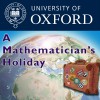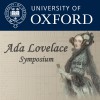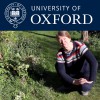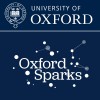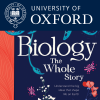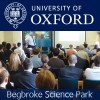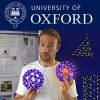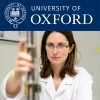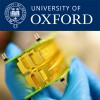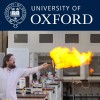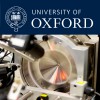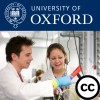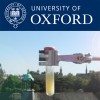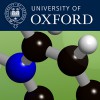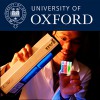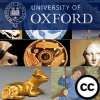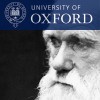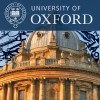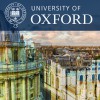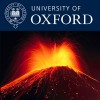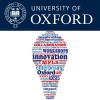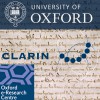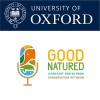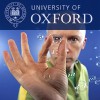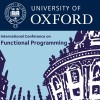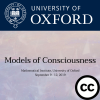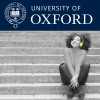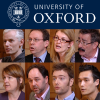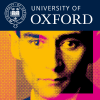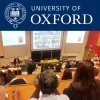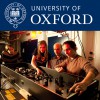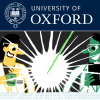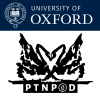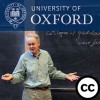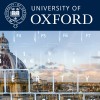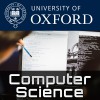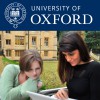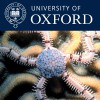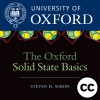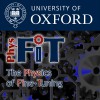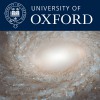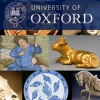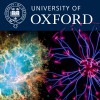Mathematical, Physical and Life Sciences (MPLS)

Relevant Links
The Mathematical, Physical and Life Sciences (MPLS) Division is one of the four academic divisions of the University of Oxford. We have over 6,000 students and research staff, and generate over half of our funding from external research grants.
The MPLS Division's 10 departments and 3 interdisciplinary units span the full spectrum of the mathematical, computational, physical, engineering and life sciences, and undertake both fundamental research and cutting-edge applied work. Our research addresses major societal and technological challenges and is increasingly interdisciplinary in nature. We collaborate closely with colleagues in Oxford across the medical sciences, social sciences and humanities.
Today's scientific research not only crosses traditional subject boundaries, but also transcends national boundaries: MPLS scientists collaborate with researchers from around the world, and play leading roles in many international projects.
Series associated with Mathematical, Physical and Life Sciences (MPLS)
| # | Episode Title | Description | People | Date | |
|---|---|---|---|---|---|
| 1083 | Culture and conservation with Miriam Supuma | In this episode, Julia and Sofia talk to conservationist Miriam Supuma about traditional knowledge, birds of paradise and the role of cultural identity in preserving biodiversity. | Julia Migne, Sofia Castello y Tickell, Miriam Supuma | 17 Dec 2021 | |
| 1082 | Artivism and conservation with Sofiya Shukhova | In this episode, Julia and Sofia talk to artivist Sofiya Shukhova about the complexities of the wildlife trade and finding inspiration in unexpected places. | Sofia Castello y Tickell, Julia Migne, Sofiya Shukhova | 08 Nov 2021 | |
| 1081 | Strachey Lecture: The Quest for Truth in the Information Age | The advantages of computing for society are tremendous. But while new technological developments emerge, we also witness a number disadvantages and unwanted side-effects. | Sonja Smets | 04 Nov 2021 | |
| 1080 | Becoming a field conservationist with Rachel Ashegbofe Ikemeh | In this episode, Sofia and Julia talk to conservationist Rachel Ashegbofe Ikemeh about conserving chimpanzees, the importance of mentorship, and also being a woman in the field. | Rachel Ashegbofe Ikemeh, Julia Migne, Sofia Castello y Tickell | 04 Oct 2021 | |
| 1079 | Polar pursuits with Tom Hart | In this episode, Sofia and Julia talk to penguinologist Tom Hart about the dynamics of polar ecosystems and creating a sense of home in remote places. | Sofia Castello y Tickell, Julia Migne, Tom Hart | 22 Sep 2021 | |
| 1078 | Shifting perspectives with Sara Lil Middleton | In this episode, Julia and Sofia talk to plant ecologist Sara Lil Middleton about seeing beyond the “green carpet” to understand grasses and climate change and her work to promote equality and diversity in the biological sciences. | Sara Lil Middleton, Sofia Castello y Tickell, Julia Migne | 10 Sep 2021 | |
| 1077 | Inspiring love for insects with Dino Martins | In this episode, Sofia and Julia talk to Kenyan entomologist Dino Martins about his passion for insects, the importance of art, and his work engaging farmers in conservation. | Dino Martins, Sofia Castello y Tickell, Julia Migne | 16 Aug 2021 | |
| 1076 | Nature Notes: Spotting tree kangaroos with Danny Nane | In this week’s Nature Note, Danny shares his childhood experience with endangered Matschie’s tree kangaroos in Papua New Guinea’s first protected area. | Danny Nane, Sofia Castello y Tickell, Julia Migne | 04 Aug 2021 | |
| 1075 | Nature Notes: Smelling sage with Mike Clark | In this week’s Nature Note, Mike transports us to a sagebrush prairie in Montana and reconciles big spaces with small details. | Mike Clark, Sofia Castello y Tickell, Julia Migne | 30 Jul 2021 | |
| 1074 | Causality and Autoencoders in the Light of Drug Repurposing for COVID-19 | Caroline Uhler (MIT), gives a OxCSML Seminar on Friday 2nd July 2021. | Caroline Uhler | 29 Jul 2021 | |
| 1073 | Recent Applications of Stein's Method in Machine Learning | Qiang Liu (University of Texas at Austin) gives the OxCSML Seminar on Friday 4th June 2021. | Qiang Liu | 29 Jul 2021 | |
| 1072 | Do Simpler Models Exist and How Can We Find Them? | Cynthia Rudin (Duke University) gives a OxCSML Seminar on Friday 14th May 2021. | Cynthia Rudin | 29 Jul 2021 | |
| 1071 | Practical pre-asymptotic diagnostic of Monte Carlo estimates in Bayesian inference and machine learning | Aki Vehtari (Aalto University) gives the OxCSML Seminar on Friday 7th May 2021 | Aki Vehtari | 29 Jul 2021 | |
| 1070 | Nature Notes: Monitoring Scottish wildcats with Lara Semple | In this week’s Nature Notes mini-episode, we hear from Lara Semple about how monitoring Scottish wildcats led to the most exciting text she ever received. | Lara Semple, Sofia Castello y Tickell, Julia Migne | 22 Jul 2021 | |
| 1069 | Nature Notes: Searching for Red Squirrels in Tresco with Joe Woodman | Join us for our very first Nature Notes mini-episode to hear from DPhil student Joe Woodman. You’ll get to hear all about his experience searching for red squirrels on the British island of Tresco. | Joe Woodman, Sofia Castello y Tickell, Julia Migne | 21 Jul 2021 | |
| 1068 | Mathemalchemy: a mathematical and artistic adventure | This lecture is a visual treat as Ingrid Daubechies celebrates the joy, creativity and beauty of mathematics. | Ingrid Daubechies | 19 Jul 2021 | |
| 1067 | I is a Strange Loop - written and performed by Marcus du Sautoy and Victoria Gould | From the creative ensemble behind Complicité’s sensational A Disappearing Number, this two-hander unfolds to reveal an intriguing take on mortality, consciousness and artificial life. | Marcus du Sautoy, Victoria Gould, Simon McBurney | 19 Jul 2021 | |
| 1066 | Complexity of local MCMC methods for high-dimensional model selection | Quan Zhou, Texas A and M University, gives an OxCSML Seminar on Friday 25th June 2021. | Quan Zhou | 02 Jul 2021 | |
| 1065 | Assessing Personalization in Digital Health | Distinguished Speaker Seminar - Friday 18th June 2021, with Susan Murphy, Professor of Statistics and Computer Science, Harvard John A. Paulson School of Engineering and Applied Sciences. | Susan Murphy | 23 Jun 2021 | |
| 1064 | Machine Learning in Drug Discovery | Graduate Lecture - Thursday 3rd June 2021, with Dr Fergus Boyles. Department of Statistics, University of Oxford. | Fergus Boyles | 23 Jun 2021 | |
| 1063 | Several structured thresholding bandit problems | OxCSML Seminar - Friday 28th May 2021, presented by Alexandra Carpentier (University of Magdeburg). | Alexandra Carpentier | 23 Jun 2021 | |
| 1062 | A primer on PAC-Bayesian learning *followed by* News from the PAC-Bayes frontline | Benjamin Guedj, University College London, gives a OxCSML Seminar on 26th March 2021. | Benjamin Guedj | 28 May 2021 | |
| 1061 | Approximate Bayesian computation with surrogate posteriors | Julyan Arbel (Inria Grenoble - Rhône-Alpes), gives an OxCSML Seminar on Friday 30th April 2021, for the Department of Statistics. | Julyan Arbel | 21 May 2021 | |
| 1060 | Introduction to Bayesian inference for Differential Equation Models Using PINTS | Ben Lambert, Department of Computer Science, University of Oxford, gives the Graduate Lecture on Thursday 6th May 2021, for the Department of Statistics. | Ben Lambert | 21 May 2021 | |
| 1059 | On classification with small Bayes error and the max-margin classifier | Professor Sara Van de Geer, ETH Zürich, gives the Distinguished Speaker Seminar on Thursday 29th April 2021 for the Department of Statistics. | Sara Van de Geer | 21 May 2021 | |
| 1058 | Convergence of Online SGD under Infinite Noise Variance, and Non-convexity | Murat Erdogdu gives the OxCSML Seminar on Friday 12th March, 2021, for the Department of Statistics. | Murat Erdogdu | 21 May 2021 | |
| 1057 | Strachey Lecture: Getting AI Agents to Interact and Collaborate with Us on Our Terms | As AI technologies enter our everyday lives at an ever increasing pace, there is a greater need for AI systems to work synergistically with humans. | Subbarao Kambhampati | 12 May 2021 | |
| 1056 | Strachey Lecture: How Innovation Works - Serendipity, Energy and the Saving of Time | Innovation is the main event of the modern age, the reason we experience both dramatic improvements in our living standards and unsettling changes in our society. | Matt Ridley | 12 May 2021 | |
| 1055 | Fluid-gravity duality and hydrodynamics of black holes | Holography explains why black hole horizons have thermodynamic and hydrodynamic properties and inspires researchers to re-visit foundations and explore limits of relativistic hydrodynamics | Andrei Starinets, Julia Yeomans | 29 Apr 2021 | |
| 1054 | Hydrodynamics of Quantum Many-Body Systems Out of Equilibrium | Can we apply hydrodynamics to systems with extensively many conservation laws | Bruno Bertini | 29 Apr 2021 | |
| 1053 | Why Hydrodynamics? | What is hydrodynamics and why does it apply over 20 orders of magnitude in energy and length. | Steve Simon, Julia Yeomans | 29 Apr 2021 | |
| 1052 | Oxford Mathematics Public Lecture. Jon Keating: From one extreme to another: the statistics of extreme events | Oxford University's Sedleian Professorship of Natural Philosophy is 400 years old in 2021. | Jon Keating | 28 Apr 2021 | |
| 1051 | Spacetime Singularities - Roger Penrose, Dennis Lehmkuhl and Melvyn Bragg | We are on board the Oxford Mathematics Space Probe for this Oxford Mathematics Public Lecture as we explore Black Holes with a Nobel Laureate, a Professor of the History and Philosophy of Physics & a broadcasting legend. | Roger Penrose, Melvyn Bragg, Dennis Lehmkuhl | 28 Apr 2021 | |
| 1050 | Distribution-dependent generalization bounds for noisy, iterative learning algorithms | Karolina Dziugaite (Element AI), gives the OxCSML Seminar on 26th February 2021. | Karolina Dziugaite | 17 Mar 2021 | |
| 1049 | Finding Today’s Slaves: Lessons Learned From Over A Decade of Measurement in Modern Slavery | Professor Davina Durgana, award-winning international human rights statistician and professor with almost 15 years of experience developing leading global models to assess risk to modern slavery, gives a talk on their work on modern slavery. | Davina Durgana | 01 Mar 2021 | |
| 1048 | Veridical Data Science for biomedical discovery: detecting epistatic interactions with epiTree | Bin Yu, Chancellor's Professor, Departments of Statistics and Electrical Engineering and Computer Science, UC Berkeley, gives a seminar for the Department of Statistics. | Bin Yu | 26 Feb 2021 | |
| 1047 | The Worm that Turned | The species with the biggest biomass in any garden is almost certainly the earthworm. These humble denizens of our soil provide essential services by turning over soil and promoting plant growth. | Lindsay Turnbull, Peter Holland | 08 Feb 2021 | |
| 1046 | (Not) Aggregating Data: The Corcoran Memorial Lecture | Professor Kerrie Mengersen, Distinguished Professor of Statistics at Queensland University of Technology in the Science and Engineering Faculty, gives the The Corcoran Memorial Lecture, held on 21st January 2021. | Kerrie Mengersen | 05 Feb 2021 | |
| 1045 | Florence Nightingale Bicentennial Panel Session | The Florence Nightingale Bicentennial Lecture was followed by a Panel Session with Professor Deborah Ashby, Professor David Cox and Professor David Spiegelhalter. The Panel was chaired by Professor Jennifer Rogers about the role of statistics in society | Deborah Ashby, David Cox, David Spiegelhalter | 05 Feb 2021 | |
| 1044 | Creative Commons | Seeing the Wood for the Trees (Part II) | We take a walk around a local park to admire more winter trees and see why conifers win over broadleaved trees as we move further North, but even they have to drop their needles during the winter in the farthest reaches of the Boreal forest. | Lindsay Turnbull | 25 Jan 2021 |
| 1043 | Strings and Fields | Will strings be the theory of everything?, presented by Prof Luis Fernando Alday. | Luis Fernando Alday | 16 Jan 2021 | |
| 1042 | Classical and Quantum Black Holes | Prof March-Russell explains our latest understanding of black holes, some of the most mysterious objects in the Universe. | John March-Russell | 16 Jan 2021 | |
| 1041 | Why is Quantum Gravity so hard? | A pressing question in our quest to understand the Universe is how to unify quantum mechanics and gravity, the very small and the very large. | John Wheater | 16 Jan 2021 | |
| 1040 | Florence Nightingale and the politicians’ pigeon holes: using data for the good of society | Professor Deborah Ashby, President of the RSS, gives the 2020 Florence Nightingale lecture. | Deborah Ashby, David Cox, David Spiegelhalter | 07 Jan 2021 | |
| 1039 | Creative Commons | Seeing the Wood for the Trees | In winter the bones of the trees are laid bare, giving us a chance to see their skeletons. Join Lindsay as she takes a tour round Wytham Woods in Oxford, showing you how to identify our common native trees from their bark and the shape of their branches. | Lindsay Turnbull | 07 Jan 2021 |
| 1038 | Ideas for a Complex World - Anna Seigal | Science and maths are full of smart tools for explaining the world around us. Those tools can feel far removed from the way the rest of us understand that world. Can we reconcile the two approaches? Oxford Mathematician Anna Seigal provides some answers. | Anna Seigal | 07 Dec 2020 | |
| 1037 | Probabilistic Inference and Learning with Stein’s Method | Part of the Probability for Machine Learning seminar series. Presented by Prof Lester Mackey (Microsoft Research New England and Stanford University). | Lester Mackey | 04 Dec 2020 | |
| 1036 | Introduction to Deep Learning and Graph Neural Networks in Biomedicine | Dr. Ekaterina Volkova-Volkmar, Senior Data Scientist, pRED Informatics - Data Science, Roche Pharma Research and Early Development, Roche, Basel, Switzerland, gives a talk on deep learning and graph neural networks in biomedicine. | Ekaterina Volkova-Volkmar | 03 Dec 2020 | |
| 1035 | Looking back on 4 years in data science | Jonny Brooks-Bartlett, Senior machine learning engineer at Spotify, gives a talk on his experiences as a data scientist and as machine learning engineer in top rated companies around the world. | Jonny Brooks-Bartlett | 28 Nov 2020 | |
| 1034 | Marine conservation with Angelique Songco | Sofia and Julia talk to Filipina marine conservationist and diver, Angelique Songco! They end season 1 by discussing the evolution of Tubbataha Reefs Natural Park, the importance of working with different stakeholders to achieve conservation success. | Angelique Songco, Sofia Castello y Tickell, Julia Migne | 24 Nov 2020 | |
| 1033 | Activism and Ecopoetry with Homero Aridjis | On this episode, Sofia and Julia talk to Mexican ecopoet, activist, and ex-diplomat, Homero Aridjis! | Homero Aridjis, Sofia Castello y Tickell, Julia Migne | 03 Nov 2020 | |
| 1032 | Oxford Mathematics Public Lecture: Henry Segerman - Artistic Mathematics: truth and beauty | Mathematicians get up to all sorts. Geometers and Topologists in particular occupy a world of inconceivable shapes, concepts and dimensions. But how do you visualise such ideas? Sure, there's computer graphics, but what about over here, in the real world? | Henry Segerman | 02 Nov 2020 | |
| 1031 | Mathematics Public Lecture: How Learning Ten Equations Can Improve Your Life - David Sumpter | Mathematics has a lot going for it, but David Sumpter argues that it can not only provide you with endless YouTube recommendations, and even make you rich, but it can make you a better person. | David Sumpter | 02 Nov 2020 | |
| 1030 | Oxford Mathematics Public Lectures: How to Make the World Add Up - Tim Harford | You have to sympathise with statistics. Misunderstood and misused when all they want to do is accumulate. What they need is a little human understanding. Tim Harford's Oxford Mathematics Public Lecture does just that. | Tim Harford | 02 Nov 2020 | |
| 1029 | Oxford Mathematics Public Lecture: Can maths tell us how to win at Fantasy Football? - Joshua Bull | Oxford Mathematician Josh Bull won the 2019-2020 Premier League Fantasy Football competition from nearly 8 million entrants. So how did he do it? Did he by any chance use mathematics? | Joshua Bull | 02 Nov 2020 | |
| 1028 | Creative Commons | Black History Month: Exploring the Data Visualizations of W.E.B. Du Bois | Jason Forrest, Director of Interactive Data Visualization, COVID Response Centre, McKinsey and Co, New York, gives the Department of Statistics Black History Month lecture, with a talk on the work of African-American scholar and activist W.E.B. Du Bois. | Jason Forrest | 23 Oct 2020 |
| 1027 | Rescuing rare plants with Carlos Magdalena | On this episode, Sofia and Julia talk to horticulturist Carlos Magdalena, also known as the Plant Messiah. We talk about the importance of plants in our day to day life, ways to make people care about them more and his conservation work at Kew Gardens. | Carlos Magdalena, Sofia Castello y Tickell, Julia Migne | 24 Sep 2020 | |
| 1026 | Crowdsourcing conservation with Meredith Palmer | On this episode, Sofia and Julia talk to ecologist Meredith Palmer about the power of citizen science, the importance of inclusivity and some of the surprising discoveries her research has uncovered in the Serengeti. | Meredith Palmer, Sofia Castello y Tickell, Julia Migne | 07 Sep 2020 | |
| 1025 | Combatting loneliness with Jessie Panazzolo | Combatting loneliness with Jessie Panazzolo On this episode, Sofia and Julia talk to Jessie Panazzolo the founder of Lonely Conservationists, an online platform which supports conservationists. | Jessie Panazzolo, Julia Migne, Sofia Castello y Tickell | 26 Aug 2020 | |
| 1024 | Creative Commons | One billion years a slave | Peering into a drop of pondwater allows you to look back in time and see key events in the history of life on Earth. | Lindsay Turnbull, Stuart West | 06 Aug 2020 |
| 1023 | Creative Commons | Feed the birds? | What do birds like eating and what decisions do they have to make when visiting a bird feeder? | Lindsay Turnbull, Friederike Hillemann, Annette Fayet | 28 Jul 2020 |
| 1022 | Theatre & Conservation with Tom Bailey | This week Sofia and Julia talk to British theatre maker and director Tom Bailey about the ways he integrates conservation topics in his pieces, the inspiration behind his work and the importance of creativity to reach different audiences. | Tom Bailey, Sofia Castello y Tickell, Julia Migne | 27 Jul 2020 | |
| 1021 | Sparking change with Purnima Devi Barman | This week Sofia and Julia talk to Indian conservationist Purnima Devi Barman about her fight to protect the greater adjutant stork, the importance of involving women in conservation and the power of creating new traditions. | Purnima Devi Barman, Sofia Castello y Tickell, Julia Migne | 14 Jul 2020 | |
| 1020 | Creative Commons | Interview with a Vampire | Find out how plants like mistletoe and hayrattle extract resources from their hosts and how hayrattle engages in a game of rock, paper, scissors, that makes managing meadows a whole lot easier. | Lindsay Turnbull | 10 Jul 2020 |
| 1019 | Creative Commons | Much ado about mothing | Dedicated to moths, this episode explores how and why these unsung heroes deserve more attention. | Lindsay Turnbull, Doug Boyes, Ben Sheldon | 30 Jun 2020 |
| 1018 | Saving species with Carl Jones | On this episode, Sofia and Julia talk with Carl Jones, a Welsh biologist renowned for saving multiple bird species in Mauritius. | Carl Jones, Julia Migne, Sofia Castello y Tickell | 30 Jun 2020 | |
| 1017 | The Science Media Centre and its work | Fiona Lethbridge, Science Media Centre, gives a talk on the Science Media Centre and it's work. | Fiona Lethbridge | 24 Jun 2020 | |
| 1016 | Empowering conservation with Megan Cromp | In this episode, Sofia and Julia talk with the founder and CEO of Key Conservation, Megan Cromp. Key is a transformational new app that aims to help empower conservationists around the world. | Megan Cromp | 16 Jun 2020 | |
| 1015 | Creative Commons | Stop the pigeon? Never! | Woodpigeons are common garden birds, whose familiar call has been likened to someone complaining about their feet. But woodpigeons make fantastic parents, and like all pigeons and doves produce a kind of 'milk' to feed their young. | Lindsay Turnbull | 15 Jun 2020 |
| 1014 | How To Set Up Continuous Integration to Make Your Code More Robust, More Maintainable, and Easier to Publish | Dr Fergus Cooper, Research Software Engineer, Oxford RSE Group, gives a talk for the department of Statistics on 5th June 2020. | Fergus Cooper | 10 Jun 2020 | |
| 1013 | Developing better code with automated testing | Graham Lee, Research Software Engineer, Oxford RSE Group, gives talk for the department of Statistics on 22nd May 2020. | Graham Lee | 10 Jun 2020 | |
| 1012 | Cluster-Randomised Test Negative Designs: Inference and Application to Vector Trials to Eliminate Dengue | Nick Jewell, University of California, Berkeley School of Public Health, gives a talk for the departmental of Statistics on 28th May 2020. | Nick Jewell | 10 Jun 2020 | |
| 1011 | MCMC for Hierachical Bayesian Models Using Non-reversible Langevin Methods | Radford M. Neal (University of Toronto), gives a talk for the department of Statistics. | Radford M Neal | 10 Jun 2020 | |
| 1010 | Oxford Mathematics Public Lecture: Squirrels, Turing and Excitability - Mathematical Modelling in Biology, Ecology and Medicine | The Grey Squirrel invasion explaining tumour cell proliferation? Alan Turing explaining football shirt patterns? The close relationship between slugs and the human heart? What is the common link? Mathematics of course. And Philip Maini. | Philip Maini | 08 Jun 2020 | |
| 1009 | Creative Commons | All that glitters | Find out how birds, insects and plants exploit iridescence. | Lindsay Turnbull | 04 Jun 2020 |
| 1008 | Eco-anxiety with Caroline Hickman | This week Sofia and Julia talk to climate psychologist Caroline Hickman about eco-anxiety, climate grief and the power of young climate activists. | Caroline Hickman, Julia Migne, Sofia Castello y Tickell | 02 Jun 2020 | |
| 1007 | Creative Commons | Three little birds | Blue and great tits commonly use nest-boxes in gardens. In this episode we explore their nesting behaviour and get a priviledged view inside the nest-boxes at Wytham Woods. | Lindsay Turnbull | 29 May 2020 |
| 1006 | Oxford Mathematics 2nd Year Student Lecture - Number Theory: Primitive Roots | In this, the second online lecture we are making widely available, Ben Green introduces and delivers a short lecture on Primitive Roots, part of the Number Theory Lecture course for Second Year Undergraduates. | Ben Green | 27 May 2020 | |
| 1005 | Oxford Mathematics 2nd Year Student Lecture - Graph Theory: Shortest Paths | Oxford has gone online for lockdown. So how do our student lectures look? Let Marc Lackenby show you as he looks at paths between vertices in a graph with a view to finding the shortest route between any two vertices. Works for your Satnav for example. | Marc Lackenby | 27 May 2020 | |
| 1004 | Creative Commons | Why is the world green? | Lindsay searches for the truth about our verdant green world and tackles a mystery about her rose-bushes: who ate all the greenfly? | Lindsay Turnbull | 24 May 2020 |
| 1003 | Community conservation with Caleb Ofori-Boateng | Welcome to Good Natured, a Conservation Optimism podcast, where you can join us for uplifting chats that shine a light on conservation challenges. In each episode, we interview an inspiring conservationist. | Caleb Ofori-Boateng | 20 May 2020 | |
| 1002 | Smartphones v COVID 19 | Smartphones will help save lives. Smartphones' value is exaggerated. What is the reality? And, as ever, what is the Maths behind it all? Leading Network Scientist Renaud Lambiotte downloads the facts in this Oxford Mathematics Public Lecture. | Renaud Lambiotte | 19 May 2020 | |
| 1001 | Creative Commons | Garden Safari: The Bug Five! | Did you know that just five groups of insects dominate your garden? And can you tell the difference between bugs and beetles? | Lindsey Turnbull | 12 May 2020 |
| 1000 | Creative Commons | Seeds of Change | In this episode we take a look at the strange life-cycle of ferns and find out why they are so dependent on water. | Lindsay Turnbull | 10 May 2020 |
| 999 | Creative Commons | Hot as mustard | In this episode we look closely at Garlic mustard or Jack-by-the-hedge, a very common plant throughout the UK. | Lindsay Turnbull | 04 May 2020 |
| 998 | Creative Commons | One is the magic number | Back Garden Biology takes a closer look at the insects in the garden including the solitary bee. | Lindsay Turnbull | 27 Apr 2020 |
| 997 | Creative Commons | Stinker! | In this episode we look at the cuckoo pint, which has an unusual flower with the central part, called a spadix, releasing a stench that to our nostrils is quite revolting. | Lindsay Turnbull | 20 Apr 2020 |
| 996 | Creative Commons | Queen Bee | Learn how to identify common garden bees and find out why they never seem to stay still. | Lindsay Turnbull | 20 Apr 2020 |
| 995 | How do mathematicians model infectious disease outbreaks? | Models. They are dominating our Lockdown lives. But what is a mathematical model? We hear a lot about the end result, but how is it put together? What are the assumptions? And how accurate can they be? | Robin Thompson | 15 Apr 2020 | |
| 994 | Creative Commons | The Lillies of the Fields | The beautiful snake's-head fritillary is the flower of Oxfordshire. In this episode we look closely at the flowers it produces. | Lindsay Turnbull | 13 Apr 2020 |
| 993 | Oxford Mathematics 2nd Year Student Lecture - Differential Equations 2 | Oxford Mathematician Peter Howell starts the second part of the 2nd year Differential Equations course which focuses on boundary problems. | Peter Howell | 09 Apr 2020 | |
| 992 | Creative Commons | Deceived with ornament | Plants attract pollinators through their colourful flowers but some plants aren't quite what they seem. | Lindsay Turnbull | 06 Apr 2020 |
| 991 | Strachey Lecture: Medicine and Physiology in the Age of Dynamics | Medicine and Physiology in the Age of Dynamics: Newton Abraham Lecture 2020 | Alan Garfinkel | 02 Apr 2020 | |
| 990 | Oxford Mathematics Public Lecture: Alan Champneys - Why pedestrian bridges wobble: Synchronisation and the wisdom of the crowd | So much noise, so many opinions. Perhaps time for Occam's Razor to start its scientific shaving? | Alan Champneys | 31 Mar 2020 | |
| 989 | Creative Commons | Sex and the single primrose | In early spring, primroses and cowslips can be found in many gardens and parks. Their yellow flowers are certainly beautiful, but they also hold a secret: they come in two different types that can only mate with each other. | Lindsay Turnbull | 26 Mar 2020 |
| 988 | Machine learning techniques in modern quantum-mechanics experiments | In this talk, Dr Elliott Bentine shall discuss how recent experiments have exploited machine-learning techniques, both to optimize the operation of these devices and to interperet the data they produce. | Elliott Bentine | 22 Mar 2020 | |
| 987 | Machine Learning and String Theory | Professor Andre Lukas will discuss how string theorists have started to use methods from data science - particularly machine learning - to analyse the vast landscape of string data. | Andre Lukas | 22 Mar 2020 | |
| 986 | An Introduction to deep learning | Professor Ard Louis gives a basic introduction to deep learning for physicists and addresses a few questions such as: Is the hype around deep learning justified, or are we about to hit some fundamental limitations? | Ard Louis | 22 Mar 2020 | |
| 985 | Welcome by Ian Shipsey Head of the Department of Physics | Ian Shipsey give an update on the department and introduces the next three talk on 'AI in Physics'. | Ian Shipsey | 22 Mar 2020 | |
| 984 | Maths and Stats in Action – Real-time Analysis to Understand the Novel Coronavirus | Providing a whirlwind tour of the quantitative analyses currently underway to understand the transmission and control of the novel coronavirus (2019-nCOV). Recorded on 31st January 2020. | Christl Donnelly, Robin Thompson, Christophe Fraser | 11 Mar 2020 |
- ‹ previous
- 2 of 12
- next ›

